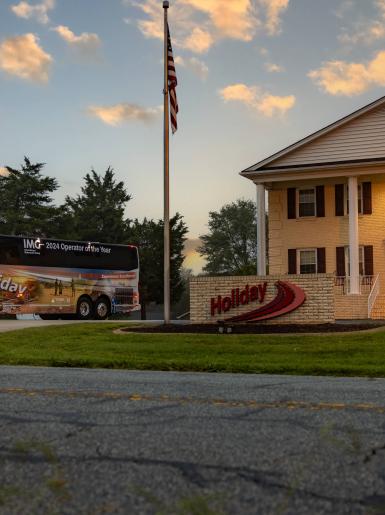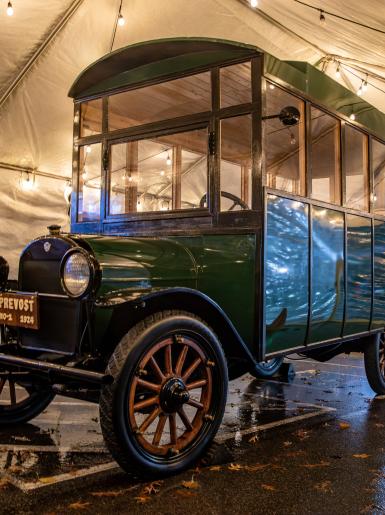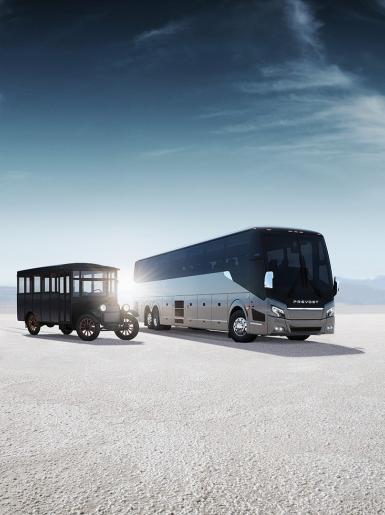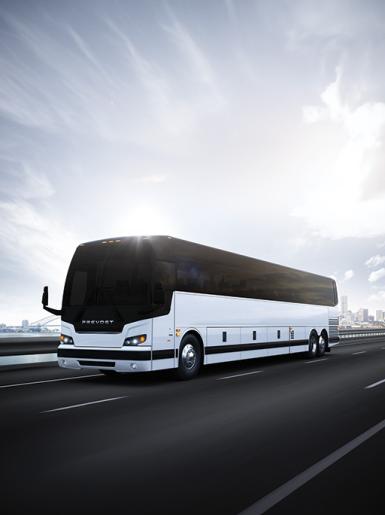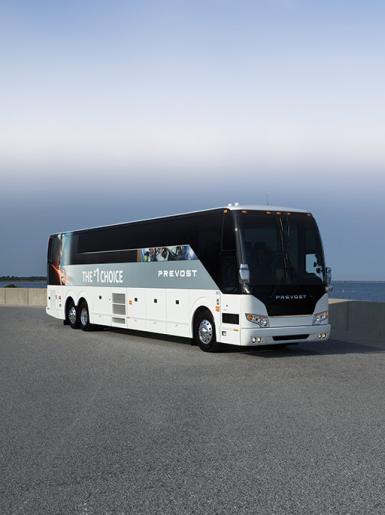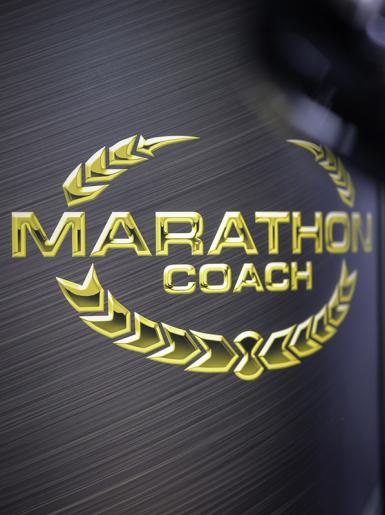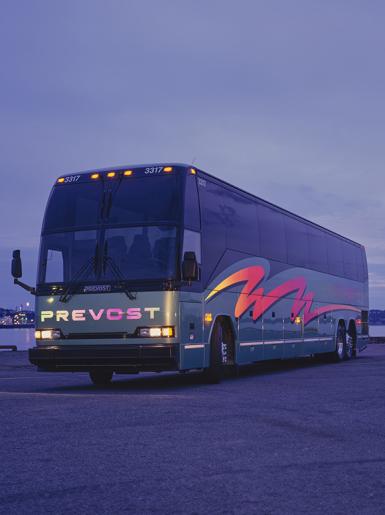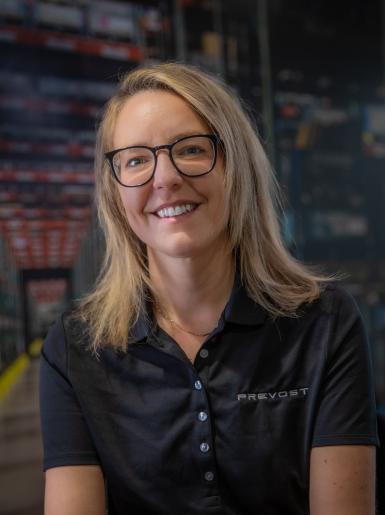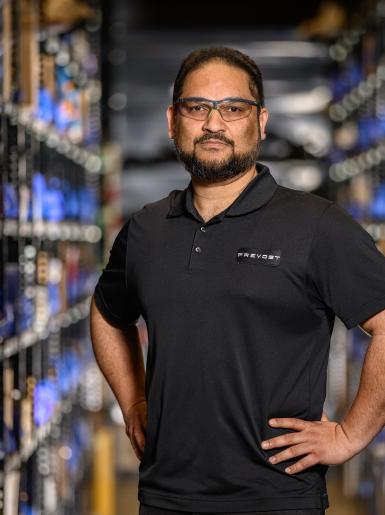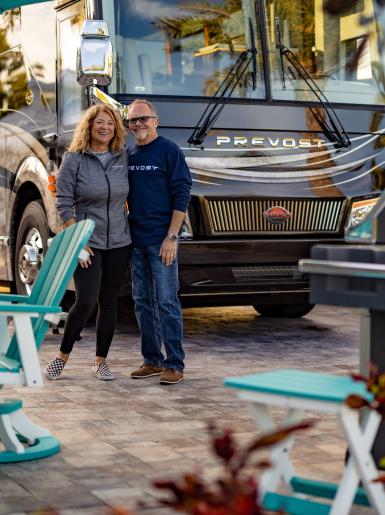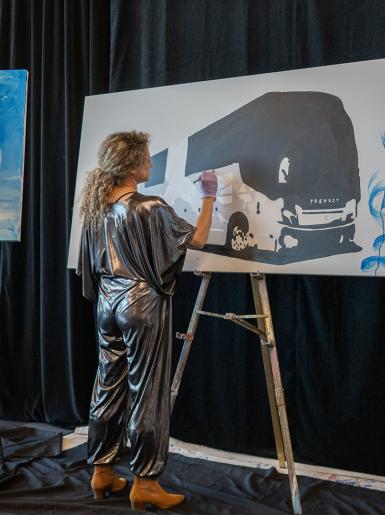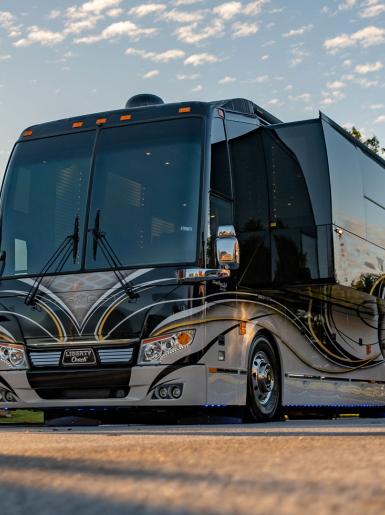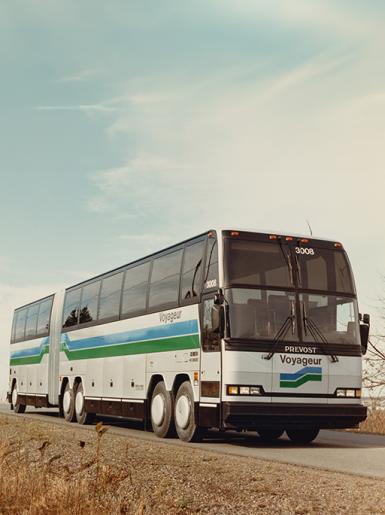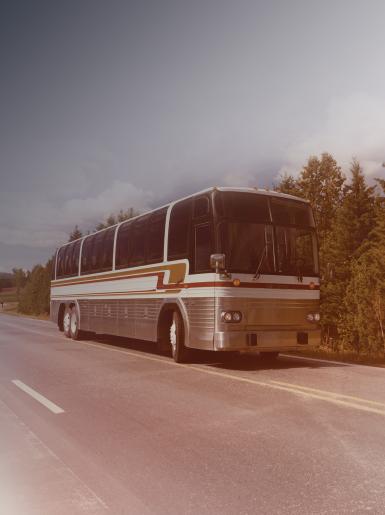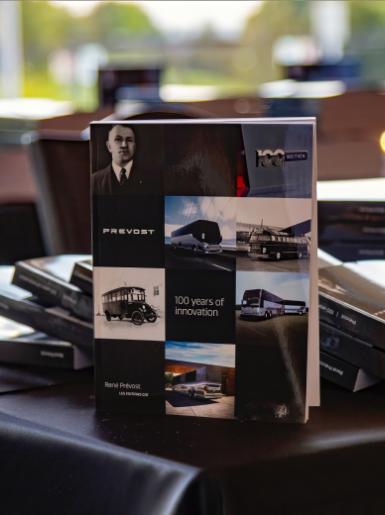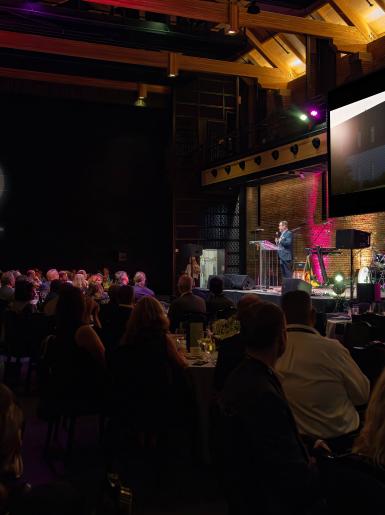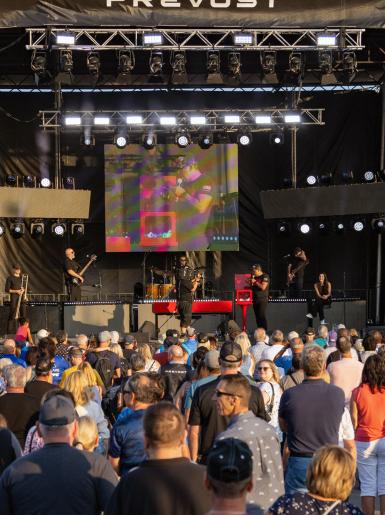History Highlights
The 1960s
Pop culture changed as artistic expression and new styles flourished. Massive cultural, political, and technological developments marked the decade. Prevost dominated with new bus models, resulting in new distribution opportunities in the United States and the company's first motorhomes.
In 1961, the 25-foot Travelair (pictured below) was introduced as a passenger coach, available in both gas and diesel versions, primarily for airport shuttles and short intercity routes. In 1962, the Panoramique replaced the LeNormand as the primary intercity coach. Featuring new windows, updated styling, and Detroit Diesel engines, the Panoramique quickly gained popularity, leading to a surge in production at the Prevost plant. By 1964, the first motorhome was rolling off the assembly line.

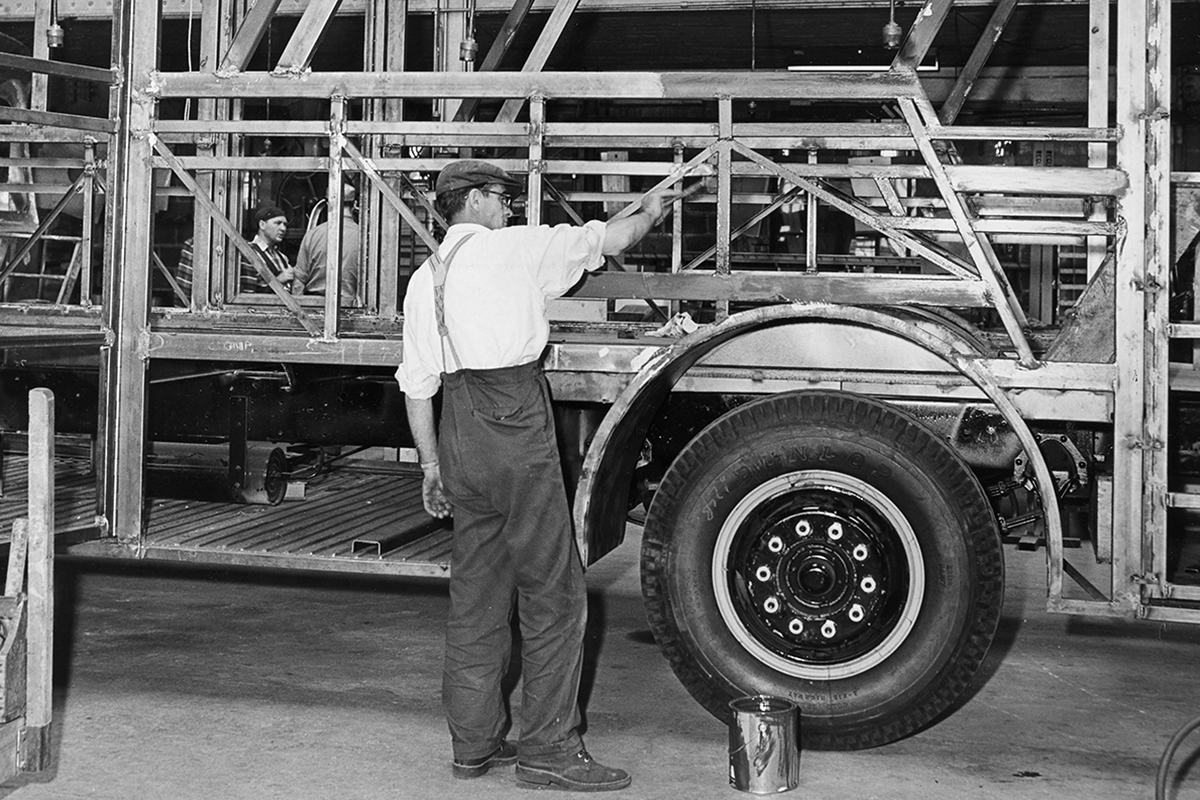
George Hunter, a Canadian documentary photographer, had a career spanning over 70 years, with a focus on industrial and landscape photography.
In the 1960s, Hunter custom-designed one of the first Prevost motorhomes to serve as a mobile home, office, and darkroom. This setup allowed him to keep all his photography gear within reach. The motorhome was equipped with a hydraulic, 25-foot ladder on the roof, which provided exceptional vantage points for high-angle photographs.
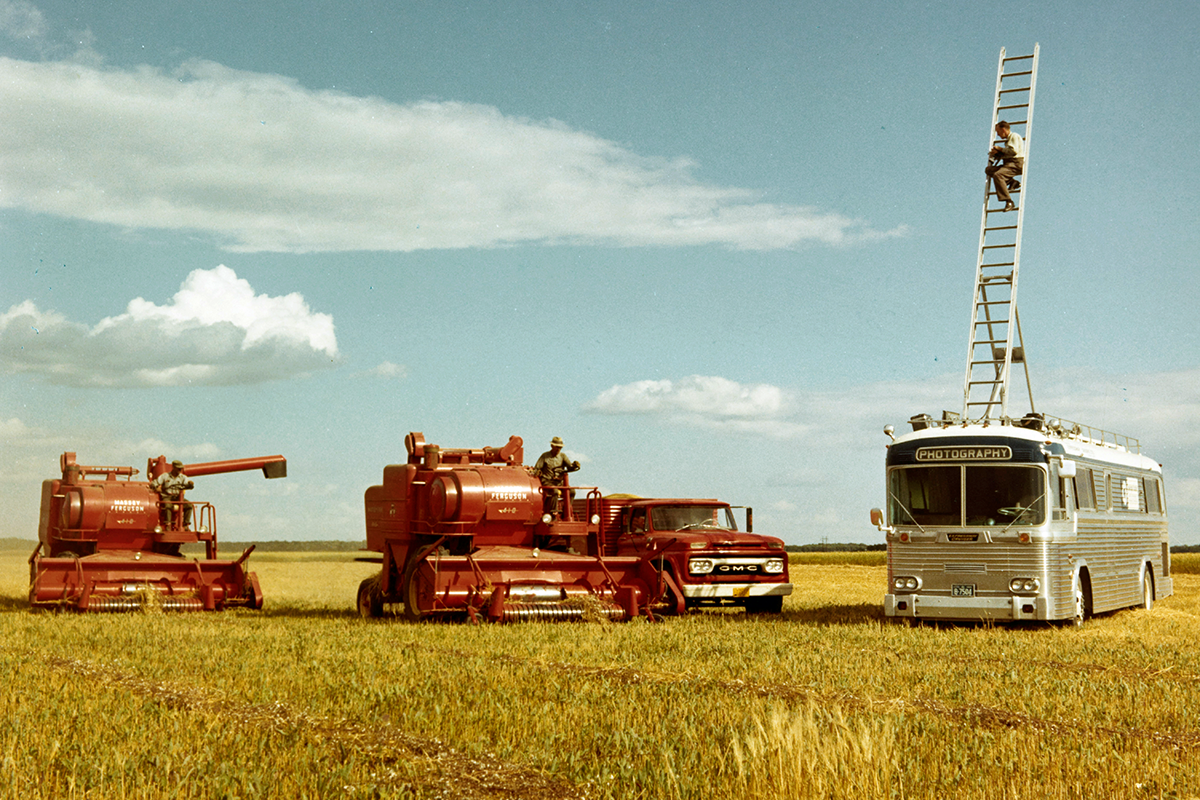
Photographer George Hunter pictured atop his Panoramique motorhome.

In 1968, the Somerset Bus Co. in New Jersey purchased four Champions, marking Prevost’s first sale to a U.S. operator.
In 1967, the Prevost Champion was the first North American coach with an integral structure and was introduced at the National Association of Motor Bus Owners (NAMBO) Convention. During this time Prevost’s first American sales and service facilities opened. One in Lyndhurst, NJ, and two in Los Angeles. A third dealership was established in Vancouver, BC.
In 1968, Prevost made another statement with the introduction of the Prestige, a coach derived from the basic Champion body shell featuring panoramic windows. The Prestige model with curved roof-wrapping side windows became the hallmark of the Prevost LeMirage XL silhouette.


From left to right Thomas B. Harbison; André Normand and William G. Campbell
In 1968 André Normand becomes president of Prevost Car Inc. A year later, two American businessmen, Thomas B. Harbison and William G. Campbell, form a partnership with André Normand, that lasts until 1995 when they become the company’s sole owners.


